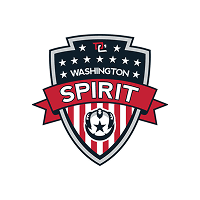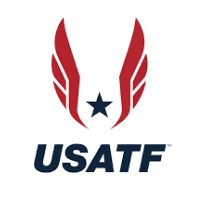

Trusted by 200+ Organizations
Build Trust Through Anonymous Reporting & Engagement
Empower your community to speak up safely through anonymous, two-way reporting and equip leaders to respond and resolve issues effectively.
Inbox
Create
THREADS
All
Drafts
Unread
Assigned
Inbox
Anonymous
via
I'm reporting potential doping violations by athletes in the regional training center.
Anonymous
via
Text Message
I would like to report an incident of hazing that happened over the weekend.
Anonymous
via
Text Message
I would like to report an incident of hazing that happened over the weekend.
Anonymous
via
Form
Reporting Form Submission.
Anonymous
via
Form
Reporting Form Submission.
Trusted by 200+ leading organizations
Trusted by 200+ leading organizations
Trusted by 200+ leading organizations
PRODUCTS
Trusted Reporting Platform
Reduce organizational risk, capture insights, and uphold integrity through secure, two-way communication channels built on trust.
PRODUCTS
Trusted Reporting Platform
Reduce organizational risk, capture insights, and uphold integrity through secure, two-way communication channels built on trust.
PRODUCTS
Trusted Reporting Platform
Reduce organizational risk, capture insights, and uphold integrity through secure, two-way communication channels built on trust.
TRUST
Built for Security, Compliance, & Accessibility.
We ensure your data is safe, your people are protected, and your operations are compliant with our user-friendly platform.
TRUST
Built for Security, Compliance, & Accessibility.
We ensure your data is safe, your people are protected, and your operations are compliant with our user-friendly platform.
ISO 27001:2022
GDPR Compliant
Penetration Tested
ADA Compliant
Regional Data Centers
The more stewards and tools we have for student success, the more campus leaders can do to support students' physical, mental, and emotional wellness. Build bridges, cultivate trust, and provide accessible, anonymous tools to elevate student perspectives and concerns. It's up to us to meet them where they are.

Matt Gregory
PHD, Student Affairs Leader
The more stewards and tools we have for student success, the more campus leaders can do to support students' physical, mental, and emotional wellness. Build bridges, cultivate trust, and provide accessible, anonymous tools to elevate student perspectives and concerns. It's up to us to meet them where they are.

Matt Gregory
PHD, Student Affairs Leader
The more stewards and tools we have for student success, the more campus leaders can do to support students' physical, mental, and emotional wellness. Build bridges, cultivate trust, and provide accessible, anonymous tools to elevate student perspectives and concerns. It's up to us to meet them where they are.

Matt Gregory
PHD, Student Affairs Leader

Thought Leadership
Featured Content
Read our thought leadership and customer stories for helpful insights on the markets we serve and how RealResponse works.

Thought Leadership
Featured Content
Read our thought leadership and customer stories for helpful insights on the markets we serve and how RealResponse works.

Thought Leadership
Featured Content
Read our thought leadership and customer stories for helpful insights on the markets we serve and how RealResponse works.
About Us
The team at RealResponse brings unwavering commitment and dedication to creating long-lasting positive experiences for our clients and their communities.

About Us
The team at RealResponse brings unwavering commitment and dedication to creating long-lasting positive experiences for our clients and their communities.

No Apps. Just Results.
Anonymous communication through everyday channels - WhatsApp, text, and email. No apps required, just real-time engagement and results.
Let's Connect
Fill out the form and a member of our team will be in touch to learn more about your needs.
RealResponse is committed to protecting your privacy. By submitting this form, you consent to RealResponse processing the information provided to respond to your request. For more information, please review our Privacy Policy.
No Apps. Just Results.
Anonymous communication through everyday channels - WhatsApp, text, and email. No apps required, just real-time engagement and results.
Let's Connect
Fill out the form and a member of our team will be in touch to learn more about your needs.
RealResponse is committed to protecting your privacy. By submitting this form, you consent to RealResponse processing the information provided to respond to your request. For more information, please review our Privacy Policy.
No Apps. Just Results.
Anonymous communication through everyday channels - WhatsApp, text, and email. No apps required, just real-time engagement and results.
Let's Connect
Fill out the form and a member of our team will be in touch to learn more about your needs.
RealResponse is committed to protecting your privacy. By submitting this form, you consent to RealResponse processing the information provided to respond to your request. For more information, please review our Privacy Policy.




















